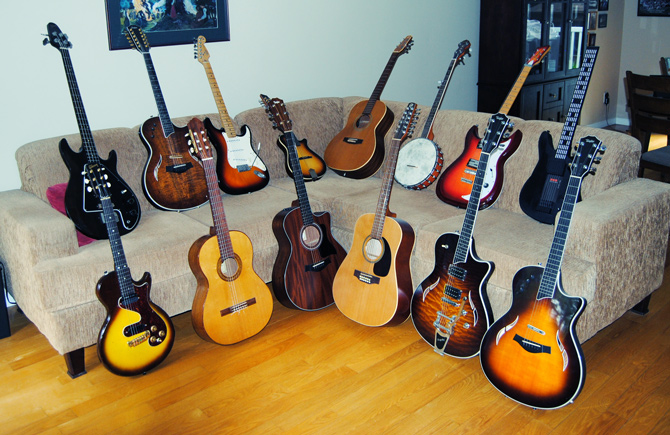In the 1920s, a few American companies built a portable record-producing machine and went throughout the rural south making the first recordings of ethnic music styles such as Cajun, traditional, Mexican, Hawaiian and even Native American chanting. Johnny Cash called these recordings the Big Bang of American music. The first recordings of jug band music were also made at this time by the Memphis Jug Band. Too poor to own instruments, these artists created music with various items and found objects such as kazoos, harmonicas, jugs, combs and basses made from washtubs, broom handles and string of some kind.
I first came across jug band music in the 60s when I saw the Jim Kweskin Jug Band on the folk music shows on TV at that time. One of my all-time favourite bands, the Jim Kewskin Jug Band transformed the sounds of pre-World War II rural music into a lively mix of blues, ragtime and folk. Kweskin’s jug band was formed gradually. When Kweskin was still at Boston University, he saw a band called The Hoppers which featured a washtub bass player named John “Fritz” Richmond. He later met and started playing with Geoff Muldaur, a blues enthusiast. After Fritz Richmond returned from a stint in the U.S. Army, they formed the Jim Kweskin Jug Band, adding Mel Lyman on banjo and harmonica and Richard Greene on fiddle The group was a smash from the onset and was quickly signed to a record contract by Vanguard Records.
While playing at the Bottom Line in New York City, they met Maria D’Amato, fiddler and vocalist for the Even Dozen Jug Band, who accepted an invitation to move to Cambridge and join the Jim Kweskin Jug Band. Soon after, Muldaur and D’Amato were married. The Jug Band broke up in the 70s but Geoff and Maria Muldaur kept playing the folk circuit, as did Kweskin, occasionally accompanied by Geoff Muldaur. Fritz Richmond went on to become a well-respected recording engineer and producer. Maria Muldaur also had a brief but successful solo career, recording the huge, Grammy-nominated hit “Midnight at the Oasis” in 1973.
“Papa’s on the Rooftop”, a popular number from the Kweskin repertoire mostly referred to as “Papa’s on the Housetop”, was composed and first recorded in 1930 by pianist-composer Leroy Carr (1905-1935). An alcoholic, Carr died of liver complications shortly after his 30th birthday.
I take a few liberties with my arrangement and lyrics of this piece but my fingerpicking is pretty similar to Jim Kweslin’s, who was heavily influenced by Blind Boy Fuller and, like me, Mississippi John Hurt.
Richard Séguin – voice, acoustic guitars
